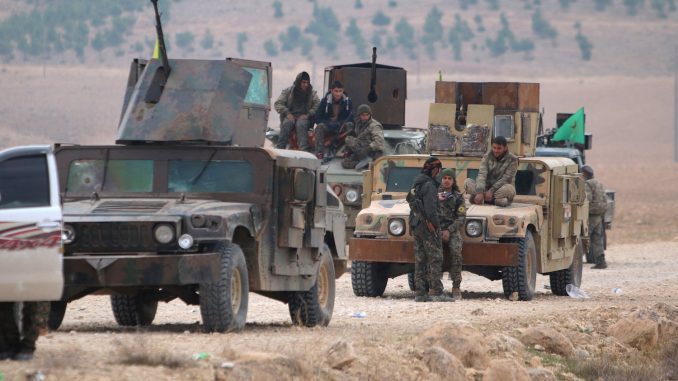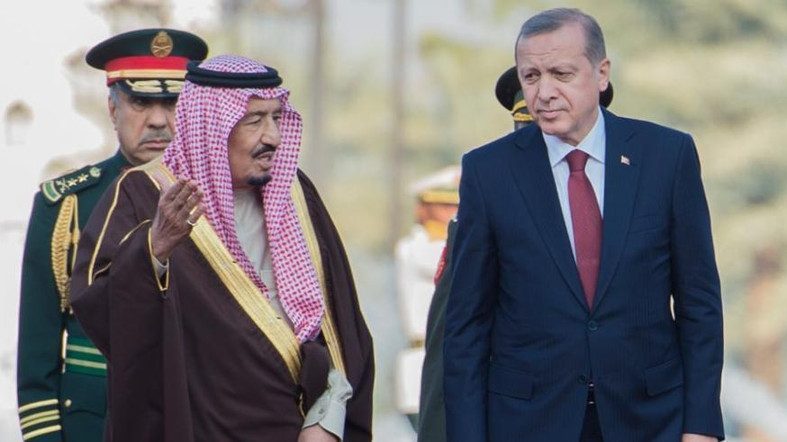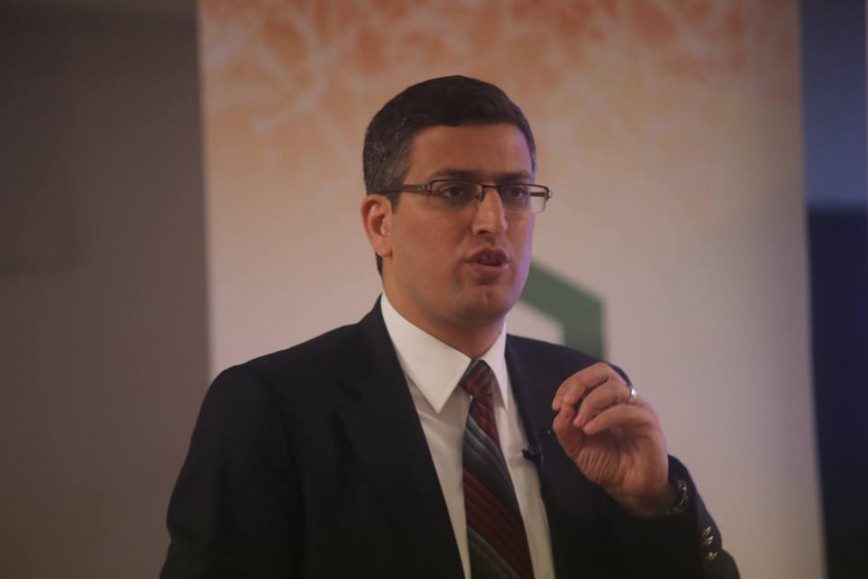
US-backed Kurdish militias operating in northern Syria have condemned Turkish strikes on their allied forces in Syria and Iraq, calling for a no-fly zone to be established and on the US to make more efforts to protect “its allies”.
Turkey’s military operation in Syria named Euphrates Shield was launched in August 2016 to drive Islamic State militants from its border and prevent Kurdish fighters from gaining ground and strengthening their positions. This operation has changed the balance of power in northern Syria and added more tension to the already complicated area.
The Syrian rebels, backed by Turkey, have managed to retake the ISIS stronghold of Jarabulus, alongside with al-Rai to the west and Dabiq city. Finally, they were able to force control on al-Bab on February 23 after months of siege and clashes.
At the same time, the Syrian Democratic Forces (SDF) alliance, which is dominated by the Kurdish YPG militia, is supported by the US as the latter uses them in its war against ISIS.
Turkey sees the YPG as an extension of Kurdish PKK militants who have waged a three-decade insurgency in southeastern Turkey.
Air strikes carried out by the US-led coalition and a long fight by the SDF forces ended in recapturing Manbij from the control of the Islamic State (ISIS) group last year.
Turkey had plans to complete further to take back Manbij and move towards Raqqa, which the US opposed.
However, the Turkish National Security Council (NSC) declared surprisingly in March ending the Euphrates Shield operation saying that it has achieved its goals without revealing further information.
But the tension with Kurds didn’t end there, as Turkey said it will block any attempt by the Kurdish militias to deliver weapons to the PKK and delivered a deadly blow to them on 25 April killing more than 70 militants in Syria and Iraq.
The Turkish airstrikes and the cross-border clashes
Turkish military carried out air strikes against PKK fighters in Iraq’s Sinjar region and northeast Syria on Tuesday, killing at least 70 militants, according to a Turkish military statement.
A statement released by Turkey’s air force said that it carried out the air strikes against PKK targets located in the Sinjar Mountains region in northern Iraq and in Karachok Mountains in northeastern Syria on Tuesday.
The targets were hit to prevent the PKK from sending “terrorists, arms, ammunition and explosives to Turkey,” the statement said, adding that the operation was conducted “within the scope of the international law”.
“At least six people were killed, five from the Peshmerga and a sixth from Asayish [Rojava],” Lieutenant-General Jabbar Yawar, secretary-general of the Ministry of Peshmerga Affairs in Iraq’s autonomous Kurdish government, told AFP news agency.
The UK-based Syrian Observatory for Human Rights, a monitoring group which tracks the Syrian war, said that at least 18 YPG fighters were killed in the air strikes in Syria’s Hasaka province.
These airstrikes were followed by cross-border clashes between the Kurdish-militias and the Turkish military.
Rockets fired onThursday and Friday from an area controlled by YPG in Syria targeted several Turkish army command posts near the border.
Seven militants were killed in retaliation on Thursday, according to the Turkish military. The mortar shells hit an army command post in the Akcakale district of Sanliurfa province on April 27, injuring one soldier lightly.
The military said in an earlier statement that 11 border posts had been subjected to 13 attacks from YPG-controlled areas.
Six of the attacks came on April 27, the military said in a statement the same day, adding that the Turkish forces reciprocated.
On Friday, The Turkish army fired back and killed 11 “terrorists”, it said. There were no reports of casualties on the Turkish side.
This was the third day in a row that clashes have been reported across the tense border.
Friday’s clashes came as President Recep Tayyip Erdogan warned the YPG that Turkey would fire back against any assault and thwart the creation of any Kurdish state in northern Syria.
“Are we going to leave them unanswered? We are doing what is necessary,” Erdogan said in Istanbul.
“We will continue to take any measures as long as the threats persist. We will not allow efforts to form a terror corridor at our southern border,” Erdogan said.
No-Fly-Zone
Senior officials in the Kurdish militias called the global powers to agree on a No-Fly-Zone over the Kurdish de facto autonomous region in northern Syria (Rojava) and asked the US to do more efforts to help and protect them.
“The Turkish regime with this attack has tried to reduce the pressure our forces backed by the international coalition have exerted on IS by hampering the operation to liberate Raqqa,” an SDF statement said.
“The regime has constantly harmed the relations with it neighbor with its countless violations against civilians and combatants in northern Syria,” it added.
Ilham Ahmed, the co-chair of the political wing of the Syrian Democratic Forces, said that a no-fly zone must be set up to protect Kurdish forces from further Turkish attacks.
“The IS must take a clear stand against Turkish aggression,” Ahmed told al-Monitor on Tuesday.
“We are fighting against [IS] with the US and Turkey is hitting us from behind, giving [ISIS] more oxygen… We demand that the US establish a no-fly zone to protect us against further aggression,” she added.
The Movement for a Democratic Society (TEV-DEM), a governing coalition of the so-called Rojava, renewed these calls.
“Now after this aggression, we firmly repeat our call for a no-fly zone over Northern Syria, and this demand is going to be part of our agenda in the following stage. Even though we have not been invited to Astana, we call upon the participants to accept a no-fly zone, and we will strongly confirm this demand in all the conferences held on Syria,” TEV-DEM representative Muhammad Hassan said.
“We call upon super powers, like the US, the Russian Federation, and the EU countries to help us fulfill this demand,” Hassan said.
US President Donald Trump has long called for “safe zones” to be established in northern Syria, but it was no meant then for military purpose but for millions of people displaced by the war to seek refuge within their own country.
Turkey’s President Recep Tayyip Erdogan said the US and Russia were informed of the attacks, but the US State Department said it was deeply concerned by the air strikes, which it said were not authorized by the US-led coalition fighting ISIS in Iraq and Syria.
“We have expressed those concerns with the government of Turkey directly,” State Department spokesman Mark Toner told reporters.
“These air strikes were not approved by the coalition and led to the unfortunate loss of life of our partner forces.”
Toner said the strikes hurt the coalition’s efforts to go after the militants. “We recognize their concerns about the PKK, but these kinds of actions frankly harm the coalition’s efforts to go after ISIS and frankly harm our partners on the ground who are conducting that fight.”



